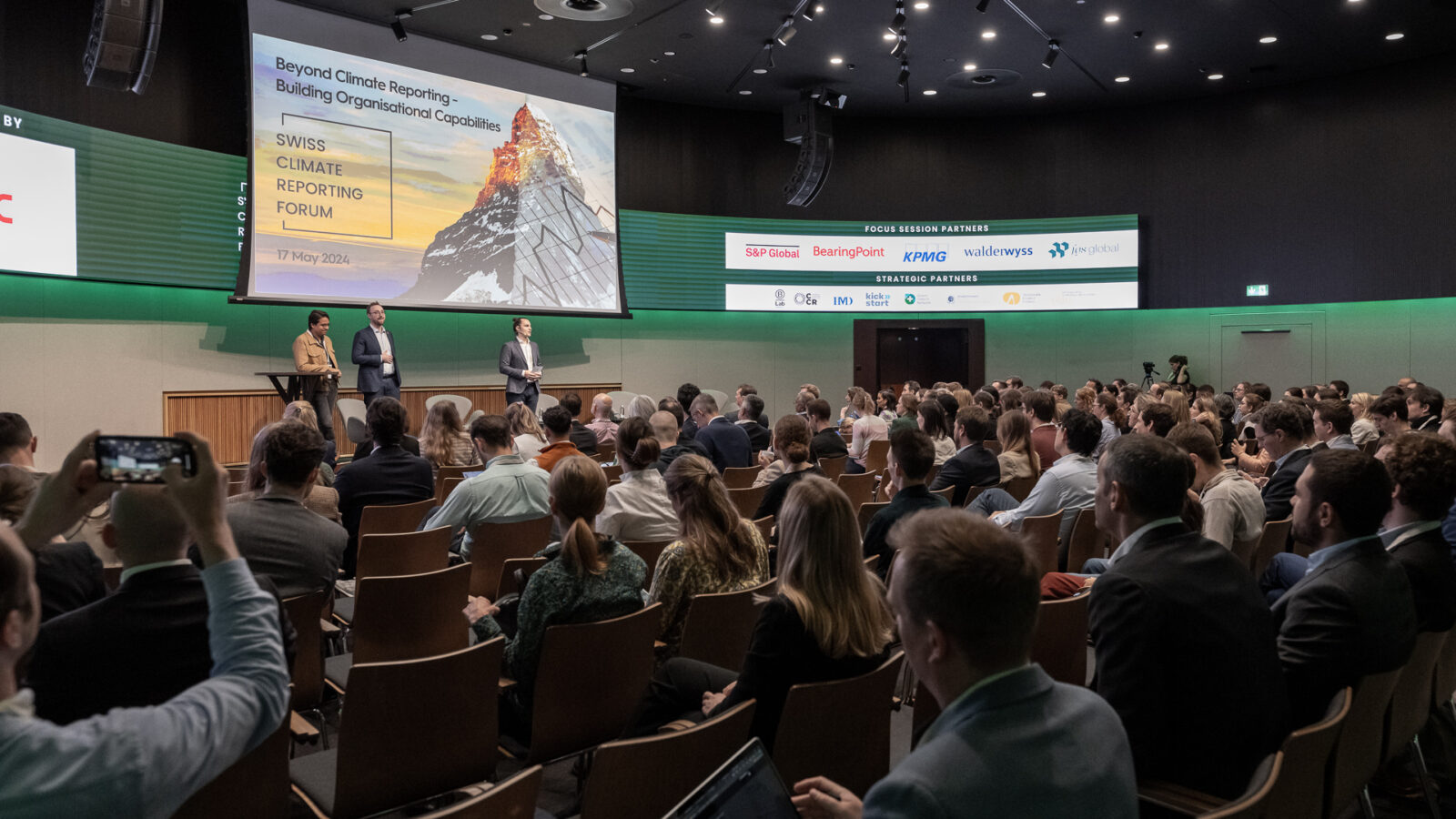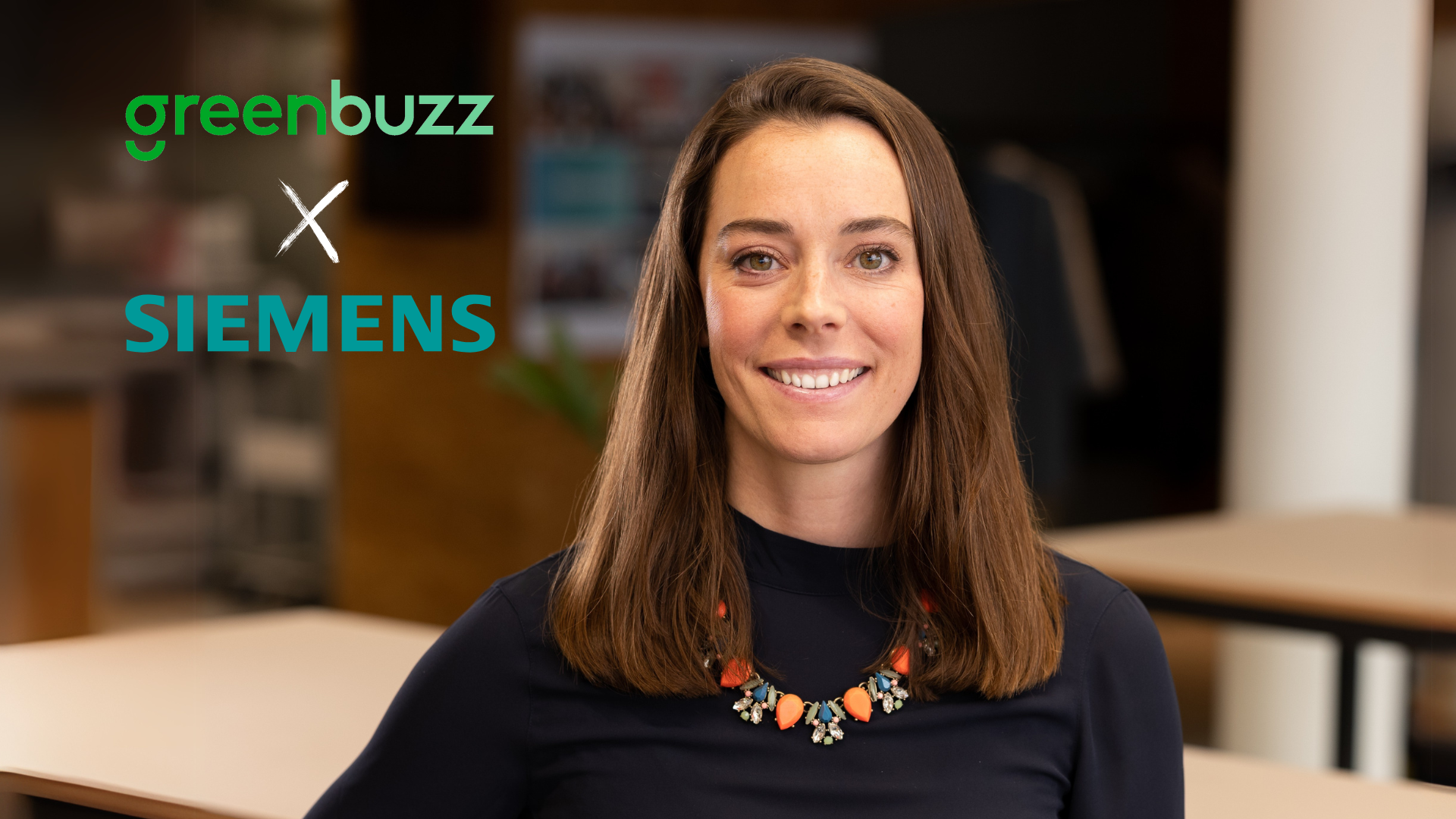We sat down for a chat with Rachel Whittaker, Head SI Research at Robeco, one of GreenBuzz’s important premium partners. She discussed the development of sustainable investing – and how Robeco has been at the forefront of this for decades.
Q: What first prompted Robeco to become a GreenBuzz partner?
A: Robeco has been committed to sustainable investing for more than 20 years, and as part of that we support initiatives to promote broader sustainability goals in the markets we operate in. Partnering with GreenBuzz in Switzerland allows us to help further their mission to encourage businesses to make sustainability the new normal, fostering collaborations and knowledge transfer across the business, science, public office and industry communities.
Q: We’ve met up at a few of our events – what has been your favourite so far?
A: I have attended a variety of events over the years and I particularly appreciate the diverse topics and the new people I meet. I recall a particularly enjoyable Christmas party on top of the Uetliberg several years ago, as well as the Sustainable Finance Lunches. A recent conference on Climate Reporting in Switzerland was a topic close to our heart as a sustainable asset manager. GreenBuzz events often highlight how much work still needs to be done but at the same time it’s very encouraging to see that many businesses are on the right track.
Q: Tell us about Robeco’s sustainability journey over the years.
A: The predecessor to Robeco in Switzerland was SAM (Sustainable Asset Management), a Swiss asset manager specializing in sustainable thematic investing and corporate sustainability assessments. We became part of Robeco in 2006 and helping our investors pursue both financial returns and sustainability remained part of our DNA. Today we nurture a culture in which new ideas are welcomed and embraced, from investing in Peru in 1930 and Hong Kong in 1968 to launching one of the first SDG-aligned funds in 2017. We are a pure-play global asset manager and aim to be a leader in Sustainable Investing, with a strong range of client propositions in quant, thematic, credits and emerging market investing. The core of our philosophy is to be research-led, as we know that we provide greater value to our clients if our innovation is grounded in research.

The 2024 version of the Swiss Climate Reporting Forum, mentioned above.
Q: What sustainability challenges does your industry need to overcome?
A: Like many other industries, the finance sector is grappling with the need for the global economy to transition to low carbon and meet the 2050 goal of net zero carbon emissions. The energy transition presents both risk and opportunities to our investments across all sectors, and is in full swing, with new technologies and sustainability-related regulations increasingly being the driving forces.
Yet the SI industry is also grappling with its own transition as it has moved from being a niche activity at the start of the 21st century to a mainstream investment activity today. This has brought more stringent definitions and new regulatory frameworks for SI products in many regions. These changes are welcome as necessary steps toward sustainable investing simply becoming ‘investing’, but at the same time they require significant effort and resources to implement.
Q: If you could make one change to make the world more sustainable, what would it be?
A: If I could make one change to make the world more sustainable, I would focus on accelerating the transition to renewable energy sources. This would involve significantly increasing investments in solar, wind, and other clean energy technologies, as well as improving energy storage solutions to ensure a reliable and resilient power grid.
Energy is the most important lever we have because it underpins almost every aspect of modern life and economic activity. By prioritizing renewable energy, we could reduce our dependence on fossil fuels, lower greenhouse gas emissions, and mitigate the impacts of climate change. This shift would not only benefit the environment but also create new economic opportunities and jobs in the green energy sector.
Rachel, thank you for your time!



